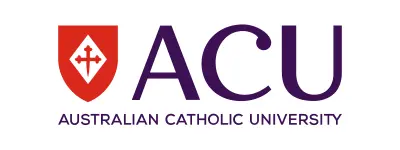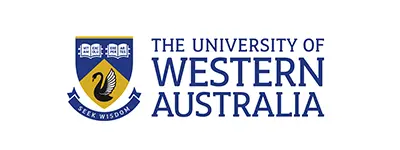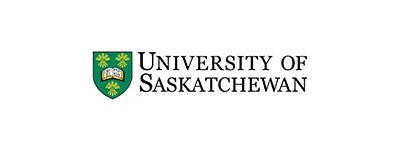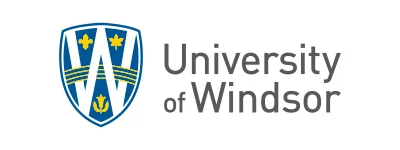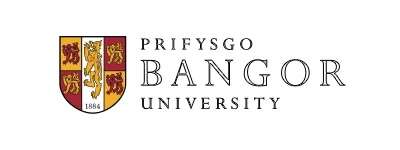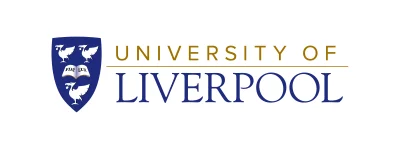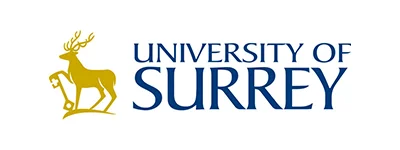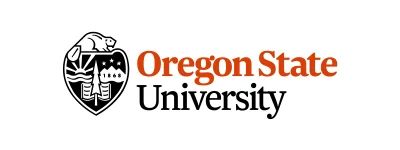Guide to Studying in the United Kingdom
Academic Year
September - July
130
Ranked Institutions
218
Listed Institutions
Currency
British Pound
Study in United Kingdom
The United Kingdom, made up of England, Wales, Scotland, and Northern Ireland, has been the most popular study destination for international students. It has some really famous and renowned universities such as Oxford, Cambridge, King’s College London, and Imperial College London. With over 160 higher education institutions, the UK offers a wide range of choices for students seeking to study abroad.
Why Study in the United Kingdom?
Here are a few reasons why studying in the UK is a good choice:
- 1.
Most universities in the UK doesn’t require students to take SAT/ACT or GMAT/GRE for undergraduate or postgraduate admissions respectively.
- 2.
The UK allows students to complete their degrees faster than other countries, with undergraduate degrees completed in 3 years and Master degrees completed in 1 year.
- 3.
The UK allows students to work part-time for up to 20 hours per week during the term-time and 40 hours per week during summer break.
- 4.
UK Universities offer tuition fee discounts and partial scholarships to international students.
- 5.
Graduates who finish their degree in the UK are eligible for a 2-year Post-study work visa, followed by a 5-year Tier 2 work visa, leading to permanent residency in the UK.
Study Options in the UK
The UK provides a wide range of study options, with many renowned universities and thousands of courses to pick from. Here are the study options available for international students planning to study in the UK.
- Program
- Duration
- Foundation year
- 1 year and/or 6 months
- Undergraduate Degree
- 3 Years or 4 Years including sandwich (placement) year
- Master’s Degree
- 1 Year / 18 to 24 months including advance practice
- Topup Year
- 1 Year
- Pre-Master degree
- 6 months and/or 12 months
- Pre-sessional
- As needed (if an English language skills are not at the required level)
- English Language course
- 1 month to 24 months
Foundation Year
Universities in the UK offers foundation courses, also known as Pathway, in a variety of subjects such as Art and Design, Business and Economics, Finance, Computing, Law, Engineering and Sciences, Social Sciences and Humanities, and Medicine and Pharmacy. These foundation programs start at multiple intakes of the year including:
- September
- November
- January
- May
Here are the list of universities offering foundation year for international students planning to study in the UK.
Undergraduate Degree
Typically, an undergraduate bachelor’s degree in the UK takes 3 years for international students. However, certain degrees, such as engineering and science, can extend to four years with the option of a one-year placement, known as a sandwich year. On the other hand, some universities do provide fast-track 2-year undergraduate degrees, primarily in business disciplines, allowing students to complete their degrees more quickly.
Here are the list of universities offering UG programs and their average tuition fee for international students
Master's Degree
A postgraduate master’s degree in the UK typically lasts for 1 year, which is shorter compared to the two-year duration in many other countries. This allows international students to save both time and money, enabling them to start their professional careers more quickly. However, it’s worth noting that a few UK universities do offer master’s degrees with a placement year, extending the program to up to two years.
Here is the list of universities offering PG programs and their average tuition fee for international students.
Top-up (Final Year)
A Top-up year is a final year of an undergraduate degree, completed in one year. It allows students to upgrade their existing qualifications, like an HND or foundation degree equivalent to two years of a degree, to a full UG honors qualification. UK universities provide various intakes for top-up, including September, November, January, March, May, and July.
Learn about UK universities offering Top-up degrees and their estimated tuition fee.
Cost of Study in the UK
The tuition fees in the UK vary depending on the university chosen, and the student’s study level. Undergraduate fees start at about £12,000 per year, and for postgraduate studies, they start at around £14,000. If you’re planning to study medicine or dentistry, the fees can go up to £32,000 per year and more.
On average, the study expenses fall within the following range of prices:
Foundation in UK= £14,000 – £18,000
Undergraduate in UK= £12,000 – £22,000
Postgraduate in UK= £14,000 – £25,000
UK universities also offer the option of paying tuition fees in installments. Typically, most UK universities require a deposit of £5000 for both undergraduate and postgraduate students in the beginning before filing a visa application, with the remaining amount to be paid in installments.
Click here to learn about UK universities initial deposit and their installment plans.
Get Guaranteed Admissions in UK
Cost of living in the UK
Living costs in the UK varies across England, Ireland, Scotland, and Wales. On average, international students in the UK spend somewhere between £10,500 to £12,500 per year. However, actual living expenses may vary depending on student’s personal spending habits.
Living costs in London are significantly higher than in other cities that also provide exciting opportunities to students, such as Manchester, Birmingham, Edinburgh, and Leeds. However, it is worth noting that there are affordable areas in London as well where student can live within budget.
Click here to learn about an average expense of student in the UK, including food costs, housing, and other goods and services.
Working in the UK
Working part-time can help manage your living expenses and part of your tuition fee.
Study in the UK without IELTS
It is possible to study in the UK without IELTS by applying to few universities that have alternative English requirements. These may include having English subject as the first language in IGCSE/O-Level, achieving a score of over 65% in English in Class 12th, an undergraduate degree taught in English, or enrolling in a pre-sessional course designed for international students.
- University of Essex
- University of Bristol
- Swansea University
- Coventry University
- Middlesex University
- University of Stirling
- University of Chester
- University of Warwick
- University of Bradford
- Heriot-Watt University
- University of Portsmouth
- Brunel University London
- University of Birmingham
- University of Southampton
- University of Huddersfield
Check out university requirements for admission in the UK without IELTS.
UK University Entry Requirement
All international students must meet both the Academic and English language entry requirements to study in the UK.
- Qualifications
- Academic requirement
- English requirement
- Foundation year
- Grade 12th with 50% - 55%
- Minimum IELTS 4.5 or equivalent, with no single element less than 4.0
- International year One
- Grade 12th with 50% - 55%
- Minimum IELTS 4.5 or equivalent, with no single element less than 4.0
- Undergraduate degree
- Grade 12th or 3 A-Levels
- 6.5 with no less than 6.0 (Few universities accepts 6.0 overall)
- Postgraduate degree
- 4 Years Bachelor’s degree
- 6.5 with no less than 6.0
- Pre-master
- Bachelor’s degree with lower CGPA
- From 5.0 IELTS or equivalent, with no single element less than 4.5
Following are the documents needed as part of your application for university admission:
- Valid Passport Copy
- Two references or recommendation letters
- Bank Statement or scholarship letter
- CV (if applying for Master’s degree)
- ATAS certificate (if apply for certain Master’s degrees)
- Portfolio (if applying for art and design degree)
- BRP card, previous CAS letter and visa copy (if studied or visited UK before)
Documents may vary depending on the country you are applying from.
Best Study Abroad services for students in Qatar
Top Ranked Universities in the UK
There are over 150 public and private universities in the UK. However, Russell group universities are considered to be the top ranked UK universities. The Russell Group is a group of 24 leading universities in the UK committed to offering a world-class research in different fields.

- No.
- Universities
- Year of Joining
- 01.
- University of Oxford
- 1994
- 02.
- University of Cambridge
- 1994
- 03.
- Imperial College London
- 1994
- 04.
- University College London (UCL)
- 1994
- 05.
- University of Edinburgh
- 1994
- 06.
- University of Manchester
- 1994
- 07.
- London School of Economics and Political Science (LSE)
- 1994
- 08.
- University of Warwick
- 1994
- 09.
- King’s College London
- 1998
Click here to view the full list of 24 Russell group universities and their Year of joining
Other Partner Universities in UK
- Keele University
- Aston University
- Bangor University
- University of Derby
- Swansea University
- University of Leeds
- Liverpool University
- University of Essex
- Cranfield University
- University of Surrey
- University of Sussex
- University of Chester
- De Montfort University
- University of Leicester
- Bournemouth University
- University of Newcastle
- University of Sunderland
- University of Portsmouth
- University of Birmingham
- University of Huddersfield
- London Southbank University
- University College Birmingham
- Glasgow Caledonian University
- Northrumbria University Newcastle
- Manchester Metropolitan University
Click here to view the full list of all UK universities and their Year of joining

How to Apply for a Study Visa in the UK?
The application for a Tier 4 UK student visa can be made online. There are a handful of student visa requirements, including financial statements, English language requirements, and university offer letters, among other requirements listed below for carrying out studies in the UK:
- Proof of payment of visa fees
- Proof of accommodation in the UK
- English proficiency language results
- 4 recent colored passport-sized photographs
- A filled UK tier 4 student visa application form
- Proof of payment of Immigration Health Surcharge (IHS) fees
- A cleared tuberculosis (TB) test from a registered medical institute
- Proof of financial requirements by support of bank statements for the duration of the course.
- A valid passport along with document supportation of any travel history or previous visa refusal if applicable.
- The Confirmation of Acceptance of Studies (CAS) statement issued by the academic institute along with supporting documents
Get Free Consultation
Discover your study abroad possibilities in the UK with our free consultation. Our counselors will guide you to a successful journey. Connect today!
Dream, Explore, Study Abroad
Studying abroad gives you the chance to explore different cultures as well as gain qualifications that can help you get into your dream career.
Other Study abroad destinations
Frequently Asked Questions
- Work VIsa
Yes, getting a UK work visa while living in Saudi Arabia is possible. However, the chances are very limited because there are too many legal restrictions from the UK government. First of all, you have to get a job in the UK, and then your UK employer will send an offer letter to you, provided that he will satisfy the UK government that you are the right person for this job. You will apply for a work visa to the UK embassy in Saudi Arabia on behalf of that offer letter.
- Career
After graduating from the UK, you will get 2 to 3 years of poststudy work visa and be eligible to work anywhere in the UK. After successfully securing a job in your desired field, you can extend your work visa and excel in your career.
- Admissions
After completing the 12th grade in Canada, international students can pursue options such as diploma programs, bachelor's degrees, vocational courses, and specialized programs in various fields.
- Tution Fee
If you maintain excellent academic grades and perform well in the PTE or IELTS exams. It might be possible to open the door to scholarships in some universities. However, at the beginning of your education journey in the UK is difficult to secure discounts on fees or to get an education free.
- Earning
Yes, students pursuing full-time education in UK universities can work during studies but under certain requirements. You are more likely to spend up to 20 hours per week, and you can earn part-time. Terms and conditions can be varied by your study visa requirement as well.
Discover Partner Universities

